Moving Your Church through Growth Barriers – An Introduction
There are many times in life when we come to a fork in the road and we have to make a choice. Do we turn to left or to the right? Or do we turn around? We need to make a choice. Which road do we take? In the words of Robert Frost, do we take the road less travelled? This is what Frost calls the road not taken.
In my work coaching church leaders and congregations in missional strategies to reach the lost for Christ, I find that the majority of churches tend to take the road of least resistance, the road mostly travelled. Transitioning churches to health and growth is not easy and the demands of ministry are never ending. How does one find the time and the energy to move churches through growth barriers? So when church leaders come to the fork of the road, they take the road mostly travelled.
In the Bible we read the account of the people of Israel at the verge of entering God’s land of promise. They found themselves a fork in the road. Were they going forward into the land of Palestine and establish themselves as God’s people in this new land, or were they to go elsewhere, or worse yet, return to where they had come from? There were huge obstacles ahead. In the past 40 years of wandering they must have heard stories of the ‘giants’ who lived in the land. To go and conquer seemed a formidable task? This is when their leader Joshua put the choice challenge before them: “Choose for yourselves this day whom you will serve, whether the gods your ancestors served beyond the Euphrates, of the gods of the Amorites, in whose land you are now living” or “serve the Lord” (Joshua 24:15, 14) Joshua knew which he would take: “But as for me and my family, we will serve the Lord." (v. 15) Joshua choice was to take the road less travelled – to move forward with God! And the people followed his good and exemplary leadership: “Yes, we choose the Lord, for he alone is our God." (v. 18)
When we come to these ‘forks in the road’ these are what some people call ‘choice points.’ The term ‘choice points’ is not an uncommon term. It’s used by computer programmers to indicate a point on a software decision tree. When programmers write software, they come to these points where the computer program can move information or processes either this way or that way. These are the points at which decision are made.
We face choice points in all areas of our lives. Events and circumstances repeat themselves both in our personal lives, in the church and also in the world, that is, until we make different choices. Take for example, one’s health. We recognise as a society that we find ourselves constantly at a choice point when it comes to our health. If we want to improve overall physical health then we need to clean up our bodies. We can examine what this means for us. We can look at diet, lifestyle, how we treat our bodies. Do we smoke or drink? Do we take time to exercise? Is the mind clean or cluttered? As we clean up the inside, we see the changes on the outside as we move towards increased health. But these changes all begin at a choice point.
You can apply choice points to all challenges in life – every situation. Your physical situation in life, your spiritual situation, your relationships with others, your relationship with God – and of great concern to me is the ministry of the local church. The choices we make now have the power to keep things as they are or to move things to the next level, to do the kinds of things that will by God’s grace and power transform the world around us. At these choice points or forks in the road we either move away from or move toward becoming a healthy, growing, and transforming church. We either remain ineffective or become effective in our missional calling. We either be unlike the church or become like the church that God would have us to be.
There are five choice points that every church will face at some point in time, if they haven’t already faced them. These choice points are:
- Action vs. Inertia
- Comfort vs. Discomfort
- Control vs. Release
- Conservative vs. Progressive
- Participant vs. Spectator
The easy response of the church when facing these choice points is to do nothing, stay within their comfort zone, maintain control of everything that goes on in the church, don’t take risks, and create a spectator culture within the church. But such a church will be ineffective in reaching the lost for Christ, discipling the found, and multiplying believers and churches. It is much more difficult to take action, move out of your comfort zone, release the laity for ministry, take risks, and create a culture where everybody is engaged in ministry. The easy road or the difficult road. One leads to stagnation, if not death; the other leads to growth and life.
So here is the deal. Rather than shying away from these choice points, churches need to acknowledge, confront, and make new decisions regarding these choice point issues. Education is the key. This must be carefully directed and developed. Group discussions will be essential to congregational learning. Lay leaders are the ones best positioned to teach the concepts and lead these congregational discussions. If this is clergy-led it might simply be regarded as a program being taunted. If it is lay-led this will regarded as a ground movement, a culture shift, and this strategy already models what this shift looks like. And it is a culture shift! This process of learning should be ongoing regardless of the church size. This learning should happen in sermons, referenced in congregational meetings, distributed in printed materials, displayed on bulletin boards, and encouraged and facilitated in individual conversations. In-depth consideration of choice point issues will be necessary.
Move the church to a growth-encouraging congregational culture. You want to see people move to action – to be doers, not just hearers! You want people to move out of their comfort zones. To let go of control and release others into ministry. To take risk, and be willing to do things they have never done before. To be a participant and not a spectator. Not just some of the people – all of the people.
The strategy should include modelling and mentoring. You cannot lead what you don’t live. People who overcame a level of timidity and are now engaged in welcoming and enfolding new people to the church can be a great encouragement to others in the church to move out to welcome visitors. People who once were spectators but who are now participants can effectively appeal to others for increased involvement. While modelling is important, mentoring is even that much more effective. Mentoring = teaching + modelling. This is why it is critical to have leaders mentoring others. Churches need to teach people how to be mentors. It doesn’t happen intuitively. It needs a structure, there needs to be accountability, and above all, intentionality.
Deploy people in activities that promote growth. Provide training to move people out of their comfort zones. Train leaders to delegate – to release control of whatever they might be responsible for and multiply leaders. Take note of every step of progress – encourage people’s faith to take risks for God and his body, the church. Encourage participation by helping people discover, develop, and be deployed in spiritual gifting(s). Release people into ministry, into Christian service. Release them into their families, neighbourhoods, workplaces, schools, and communities. And when growth is evident, celebrate the increase of involvement.
And finally, prioritize evangelism, the gospel, and outreach. Churches grow most effectively by winning people to the church and to Christ. Let me ask you: if you stop having weekly Sunday services, how long would it take before people notice and start to complain? If you stopped having Sunday school classes for young children, how long would it take before people would notice and begin to complain? What about no more youth groups? Or woman’s Bible study? What if you stopped seeing people regularly converted and no intentional evangelism being done through the church? How long would it take before people would notice and begin to complain? Unless people are regularly being converted, consider reworking the program of the church. Seeing the lost converted, the converted discipled, and the discipled multiplying disciples needs to be the new scorecard for our churches.
In a series of articles I want to detail how to move your church through growth barriers. I have benefitted much from books and authors who have mentored me through their books. So what I share is not only what I have learned through more than 3 decades of pastoring and coaching churches. I share the accumulated wisdom of others, and pass on to you what I have learned from them. You would do well to become acquainted with these authors and books, if you have not done so already:
- Harney, Kevin and Bob Bouwer, The U-Turn Church – New Direction for Health and Growth (Baker Books: 2011)
- Stetzer, Ed and Thom S. Rainer, Transformational Church – Creating a New Scorecard for Congregations (B&H Publishing: 2010)
- Sullivan, Bill M., New Perspectives on Breaking the 200 Barrier (Beacon Hill Press: 2005)
The links to the other five articles are here:

 You don’t need special gifts, but you do need to care. I don’t have the
You don’t need special gifts, but you do need to care. I don’t have the As CRCA churches we are better together than we are alone. Considering a repotting strategy is not an easy choice to
As CRCA churches we are better together than we are alone. Considering a repotting strategy is not an easy choice to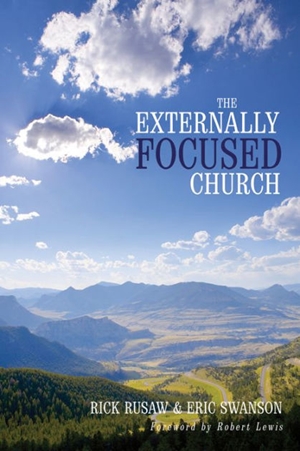 Externally focused churches are internally strong, but are orientated
Externally focused churches are internally strong, but are orientated
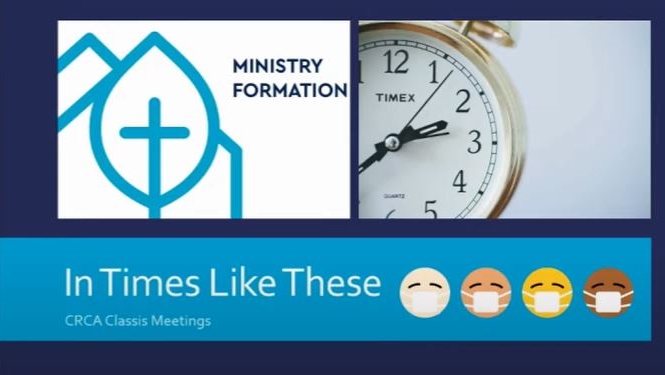

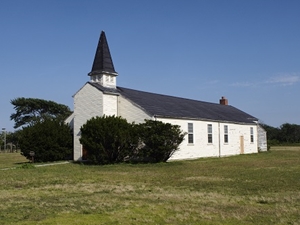
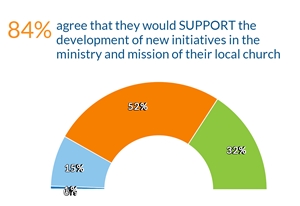






 This four week guidebook is for pastors or mentors who are preparing young people or new converts to make public profession of faith. Through
This four week guidebook is for pastors or mentors who are preparing young people or new converts to make public profession of faith. Through What does it mean to become a member of a church and get involved in a church's ministry? Here is a booklet prepared by
What does it mean to become a member of a church and get involved in a church's ministry? Here is a booklet prepared by Welcome to one-to-one discipleship! In this handbook you’ll find
Welcome to one-to-one discipleship! In this handbook you’ll find As I walked into the church lobby, the person who was walking with me
As I walked into the church lobby, the person who was walking with me Christ’s final instructions to His disciples in Matthew 28:18-20 is commonly called The...
Christ’s final instructions to His disciples in Matthew 28:18-20 is commonly called The...
 One of the great privileges we have as God’s children is the authority and privilege to invite others to be...
One of the great privileges we have as God’s children is the authority and privilege to invite others to be...
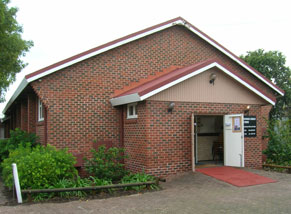 The original Reformed church congregation in Perth is the Perth CRC, located in Victoria Park. This...
The original Reformed church congregation in Perth is the Perth CRC, located in Victoria Park. This...
 Christianity is most commonly acknowledged as having significant influence on people's lives...
Christianity is most commonly acknowledged as having significant influence on people's lives...
 What does it look like when the whole church is focused on making disciples together? In
What does it look like when the whole church is focused on making disciples together? In Brian Vaatstra shares the Kingston experience of Church Planting, outlining the five stages leading up to the
Brian Vaatstra shares the Kingston experience of Church Planting, outlining the five stages leading up to the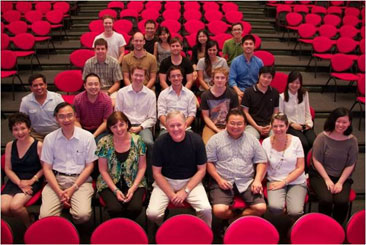 I have returned to Mackay after a five week Church Planting Intensive journey throughout four
I have returned to Mackay after a five week Church Planting Intensive journey throughout four With the close of Trowel & Sword at the end of 2009, people have found it harder to stay
With the close of Trowel & Sword at the end of 2009, people have found it harder to stay By the time you receive this report it will have been 500 days since the floods that struck South East
By the time you receive this report it will have been 500 days since the floods that struck South East Every person you encounter, every community you enter into, and every culture you engage has a dominant...
Every person you encounter, every community you enter into, and every culture you engage has a dominant...
 The Christian Reformed Churches in Australia are committed to growing healthy churches. As
The Christian Reformed Churches in Australia are committed to growing healthy churches. As A simple tool is helping churches in Arvada, Colorado, know and love their
A simple tool is helping churches in Arvada, Colorado, know and love their Consider your own Christian community. How can you capitalize on your
Consider your own Christian community. How can you capitalize on your
 Healthy churches are growing churches. For this reason one of the ministry priorities in
Healthy churches are growing churches. For this reason one of the ministry priorities in As Christians we are called to be witnesses of Christ. In common usage, what
As Christians we are called to be witnesses of Christ. In common usage, what What is the power and what are the advantages of a group of Christians as a witnessing
What is the power and what are the advantages of a group of Christians as a witnessing Do we have a clear and common vision? Does your worship glorify God? Is God’s Word the
Do we have a clear and common vision? Does your worship glorify God? Is God’s Word the Evaluation promotes ministry change. To get better at what we do as well as grow
Evaluation promotes ministry change. To get better at what we do as well as grow Brian Vaatstra of Kingston CRC, Tasmania, has overseen the planting of four churches in the
Brian Vaatstra of Kingston CRC, Tasmania, has overseen the planting of four churches in the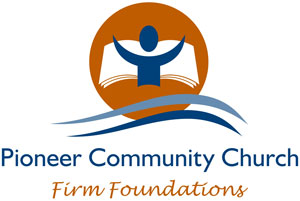 Pioneer Community Church is a new CRCA church plant in northern Queensland committed to extend its outreach...
Pioneer Community Church is a new CRCA church plant in northern Queensland committed to extend its outreach...
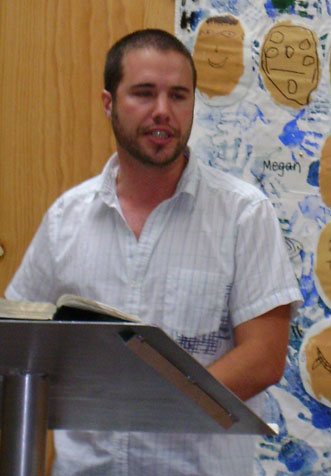 Hans Kristensen interviews three church planters from varying backgrounds and states within
Hans Kristensen interviews three church planters from varying backgrounds and states within “I stand by the door. I neither go too far in, nor stay too far out. The
“I stand by the door. I neither go too far in, nor stay too far out. The More churches are pioneering a shift toward community service. Not only are they deploying their own
More churches are pioneering a shift toward community service. Not only are they deploying their own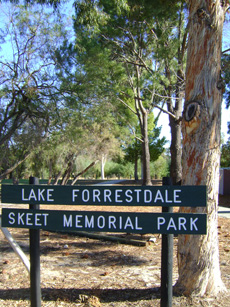 A Gospel Community Grows in Forrestdale
A Gospel Community Grows in Forrestdale How do you bridge the gap between younger and older members of
How do you bridge the gap between younger and older members of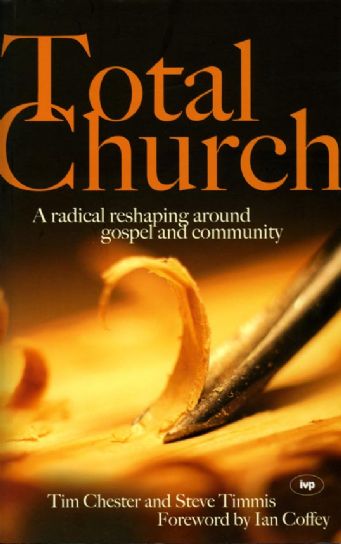 Many churches successfully preach the gospel message, but they have very little
Many churches successfully preach the gospel message, but they have very little A city of churches is a name given to various cities with many churches, including Adelaide in South
A city of churches is a name given to various cities with many churches, including Adelaide in South A good cup of coffee, some good food, and a relaxed atmosphere are all part of the strategy to reach the
A good cup of coffee, some good food, and a relaxed atmosphere are all part of the strategy to reach the Thousands of people were forced to evacuate their properties as the Brisbane River in SE
Thousands of people were forced to evacuate their properties as the Brisbane River in SE Planning a Christian outreach event is generally geared toward providing educational and recreation
Planning a Christian outreach event is generally geared toward providing educational and recreation After interviews with 50 leading missional leaders engaged in global outreach the following nine trends
After interviews with 50 leading missional leaders engaged in global outreach the following nine trends The Spiritual State of the World's Children research project was created to provide an
The Spiritual State of the World's Children research project was created to provide an A comprehensive look at what the Bible has to say about children, their
A comprehensive look at what the Bible has to say about children, their A plan for a church service which highlights the importance of valuing children and those who work...
A plan for a church service which highlights the importance of valuing children and those who work...
 The gospel is the Good News, the glorious news that God through Christ came to our
The gospel is the Good News, the glorious news that God through Christ came to our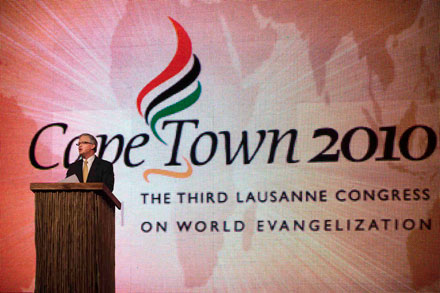 Throughout the world today, pastors, mission leaders, and laymen are working towards the day when
Throughout the world today, pastors, mission leaders, and laymen are working towards the day when In the West for nearly 1,000 years, the relationship of (Anglo-European) Christian churches to the broader
In the West for nearly 1,000 years, the relationship of (Anglo-European) Christian churches to the broader Our purpose in gathering with God's people, be it on Sunday or some other day of the week, is not only to be
Our purpose in gathering with God's people, be it on Sunday or some other day of the week, is not only to be How did Jesus intend for all lost people, from every tribe, language, people and nation, to
How did Jesus intend for all lost people, from every tribe, language, people and nation, to What is discipleship? How do we make disciples as Jesus commanded us to do in Matthew
What is discipleship? How do we make disciples as Jesus commanded us to do in Matthew The CRCA is exploring with Queensland churches the opportunity to plant a new church in Mackay. ...
The CRCA is exploring with Queensland churches the opportunity to plant a new church in Mackay. ...
 Before migrants are given their boarding pass, and take their seats in the plane, they are looking for a
Before migrants are given their boarding pass, and take their seats in the plane, they are looking for a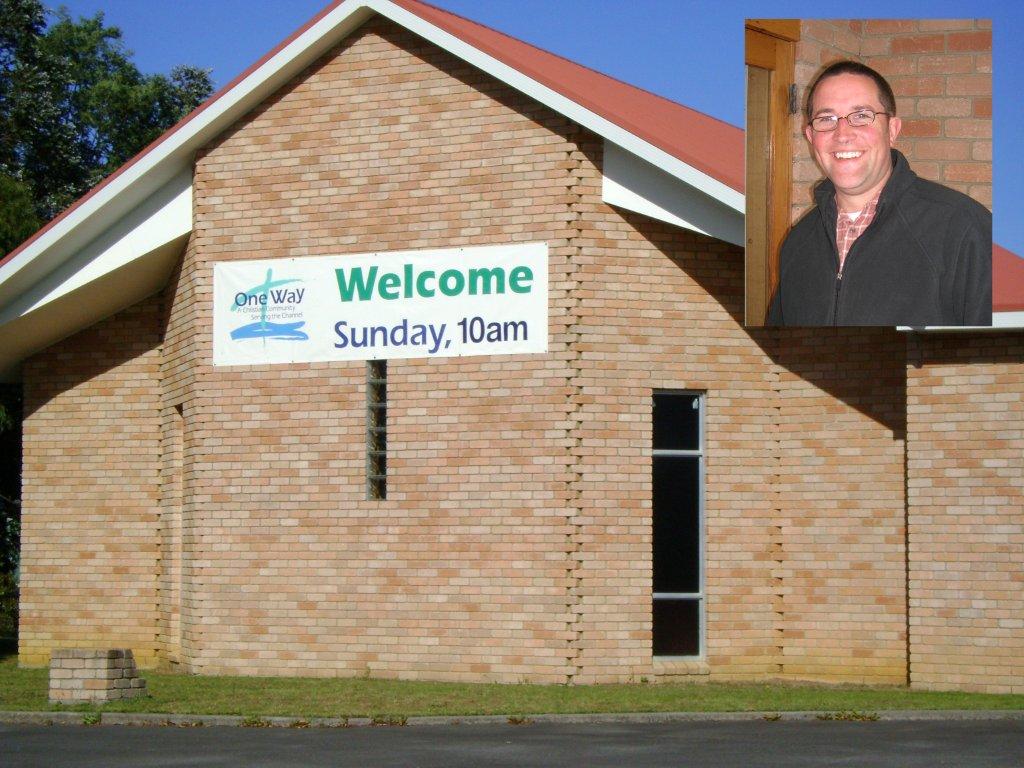 There are opportunities all around us because most Australians know...
There are opportunities all around us because most Australians know...
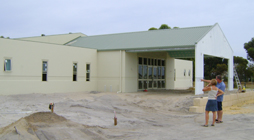 It was about 15 years ago that the Reformed Church of Brunswick Junction laid before the
It was about 15 years ago that the Reformed Church of Brunswick Junction laid before the God has given some Christians special gifts and abilities to share their faith and proclaim the Good...
God has given some Christians special gifts and abilities to share their faith and proclaim the Good...
 Issues Pastors Address when Leading a Church to Birth a
Issues Pastors Address when Leading a Church to Birth a Mansfield CRC’s vision is to grow their church to the point of ‘multiplication’...
Mansfield CRC’s vision is to grow their church to the point of ‘multiplication’...
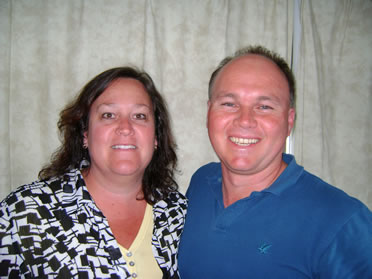 A princess, cursed by a wicked fairy, falls into a hundred-year sleep on her...
A princess, cursed by a wicked fairy, falls into a hundred-year sleep on her...
 In December 2009 the Indonesian Reformed Church (IRC) began meeting in a new area of Sydney,...
In December 2009 the Indonesian Reformed Church (IRC) began meeting in a new area of Sydney,...
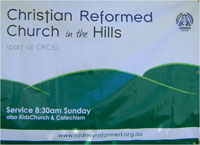 It was not a new idea. Planting a church in the Cherrybrook/Hills District on the...
It was not a new idea. Planting a church in the Cherrybrook/Hills District on the...
 It is not the year church planter Geoff...
It is not the year church planter Geoff...
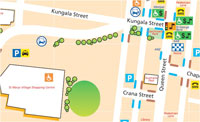 St Marys CRC in NSW took their ministry to the streets. This...
St Marys CRC in NSW took their ministry to the streets. This...
 To immigrate takes guts. You have got to be tough. It...
To immigrate takes guts. You have got to be tough. It...
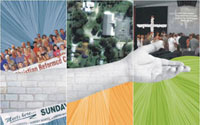 At Redlands CRC (Queensland) recent 10th Anniversary celebration, three stones were...
At Redlands CRC (Queensland) recent 10th Anniversary celebration, three stones were...
 Over the past couple of years the Dandenong CRC had the opportunity to support a group of local...
Over the past couple of years the Dandenong CRC had the opportunity to support a group of local...
 Leading ones church in a missional direction may be easier said than done.
Leading ones church in a missional direction may be easier said than done.
 The CRCA Synod will be meeting 10 - 16 May in Wonga Park, Victoria. Under God’s grace as a denomination we now have a
The CRCA Synod will be meeting 10 - 16 May in Wonga Park, Victoria. Under God’s grace as a denomination we now have a  The Ministers and Wives Conference of the Christian Reformed Churches held in August 2008 spawned a...
The Ministers and Wives Conference of the Christian Reformed Churches held in August 2008 spawned a...
 Many churches do not have a vision for church planting...
Many churches do not have a vision for church planting...
 The Afrikaners in Australia, attending CRCA churches, are undergoing change in almost...
The Afrikaners in Australia, attending CRCA churches, are undergoing change in almost...
 Vision 100 Resources is a network of church leaders working together to evangelise Tasmania, and sharing a conviction that the...
Vision 100 Resources is a network of church leaders working together to evangelise Tasmania, and sharing a conviction that the...
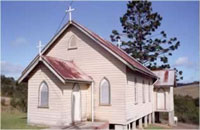 There is an immense need out in the country regions of Australia, where the call of...
There is an immense need out in the country regions of Australia, where the call of...
 When the early Dutch migrant families came to Australia 50 years ago, they brought with...
When the early Dutch migrant families came to Australia 50 years ago, they brought with...
 Jason DeVries, a senior student at Calvin Seminary, reflects on the state of the Christian Reformed Church in North...
Jason DeVries, a senior student at Calvin Seminary, reflects on the state of the Christian Reformed Church in North...

